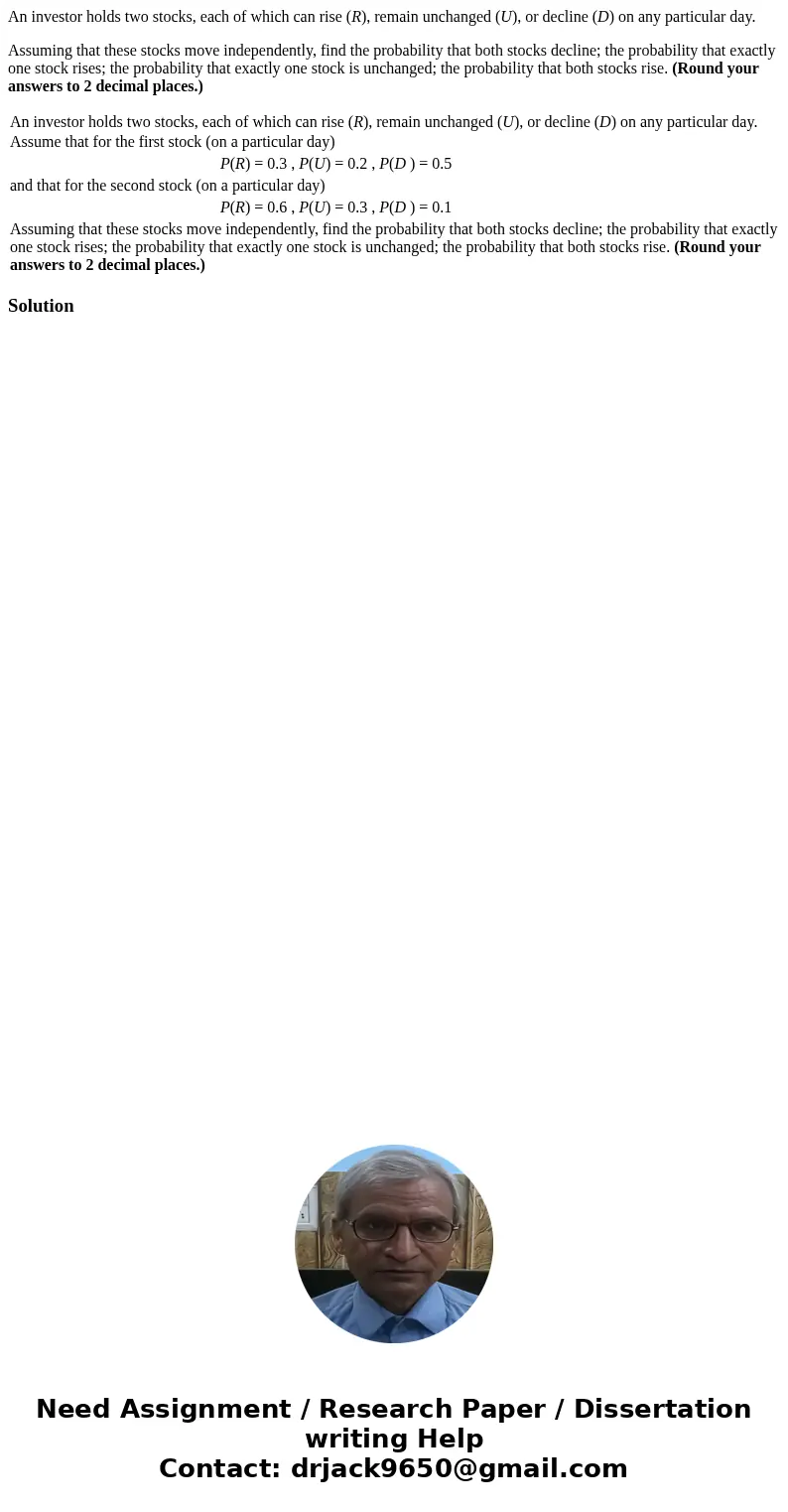An investor holds two stocks each of which can rise R remain
An investor holds two stocks, each of which can rise (R), remain unchanged (U), or decline (D) on any particular day.
Assuming that these stocks move independently, find the probability that both stocks decline; the probability that exactly one stock rises; the probability that exactly one stock is unchanged; the probability that both stocks rise. (Round your answers to 2 decimal places.)
| An investor holds two stocks, each of which can rise (R), remain unchanged (U), or decline (D) on any particular day. |
| Assume that for the first stock (on a particular day) |
| P(R) = 0.3 , P(U) = 0.2 , P(D ) = 0.5 |
| and that for the second stock (on a particular day) |
| P(R) = 0.6 , P(U) = 0.3 , P(D ) = 0.1 |
| Assuming that these stocks move independently, find the probability that both stocks decline; the probability that exactly one stock rises; the probability that exactly one stock is unchanged; the probability that both stocks rise. (Round your answers to 2 decimal places.) |
Solution

 Homework Sourse
Homework Sourse